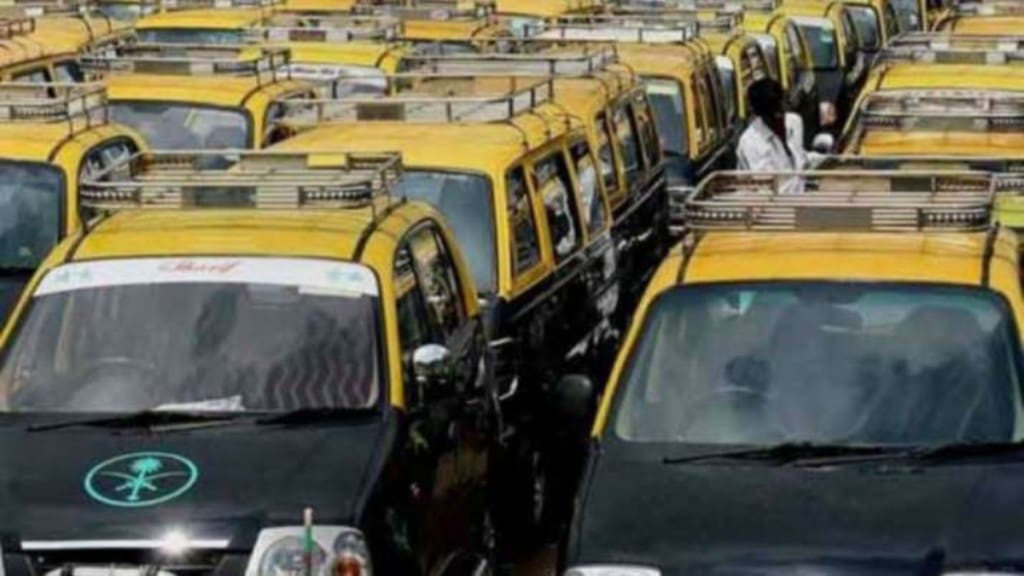It looks like the Goa administration has finally taken note of the problems that have been highlighted by the tourists via social media. Goa Chief Minister Pramod Sawant recently chaired a meeting with the state tourism board post which he said that there will be a single-window clearance system for weddings and a policy to promote Goa as a ‘destination wedding’ hub. Goa is also planning to regulate taxi fares at airports, railway stations, and cruise terminals with uniform pricing and hold global campaigns to counter misinformation and promote cultural tourism.
Regulation of taxi fares in Goa
Sawant said that stricter regulations for rent-a-car services were recommended in the meeting. According to an IE report, sources, at a conclave held with tourism industry stakeholders on Monday, concerns were raised about complaints from tourists against taxi services in the state, including exorbitant pricing, poor service, lack of transparency, speeding, and poor behaviour of drivers. Sources said the issue was brought up at the Tourism Board meeting, with a stakeholder calling for “allowing all taxi apps in Goa immediately” and for the formation of a “taxi action empowered committee”.
Such a taxi action empowered committee would be headed by the police chief and comprise officers from the Tourism Department, Transport Department, the police, and the collector’s office. It would be tasked with taking action against unruly taxis, providing protection to drivers under taxi apps and allowing vehicles to go to any destination.
The stakeholders explained that the app-based taxi services are facing challenges as drivers hesitate to join due to the fear caused by local taxi stands and unions. In some areas, taxi unions block buses, tempo travelers, Goa Miles, and other services from providing airport transfers or picking up and dropping off guests at hotels. These unions often prevent these vehicles from serving their customers.
Single-Window clearance system for MICE
A single-window clearance system for MICE (meetings, incentives, conferences and exhibitions) and weddings was also proposed to attract more events to the state, Sawant said. A report by The Indian Express stated that there might be a draft proposal to position the coastal state as a major destination wedding hub, which would attract higher tourist footfall, increase revenue, and boost GST contribution. The official told IE that the objective of this is to “promote scenic locations as prominent wedding venues while preserving Goa’s cultural ethos, environment, and social landscape.”
As per the draft proposal, the Department of Tourism will secure “blanket permission” from the Goa Coastal Zone Management Authority (GCZMA) for wedding events on beaches, ensuring that applicants only need to apply to the Tourism Department. The Tourism Department will launch an online single-window platform to integrate schemes and statutory approvals, streamlining permissions and renewals to host weddings in Goa. A master plan for enhancing wedding infrastructure, beautification, and promotion will be implemented and monitored by the Empowered Committee for Regulations.
Strengthening wedding tourism infrastructure in Goa
The draft proposal also says that to “strengthen wedding tourism infrastructure”, the directorate of panchayats shall issue an order stating that local panchayats will have no rights to grant permissions for wedding events held on beaches, as beaches are the property of the Department of Tourism/GCZMA.
According to the draft proposal, applicants will not be required to seek separate permissions for noise levels. However, the number of destination weddings per year at each approved venue will be regulated to prevent overcrowding, maintain ecological balance, and avoid nuisance.
The draft proposal says the government could propose some locations for destination weddings in the state. Among the locations suggested in the draft include all beaches in the state other than those in ecologically sensitive areas.
The Tourism Board also discussed initiatives to promote cultural tourism, such as the Ekadasha Teerth Circuit, global campaigns to counter misinformation, familiarisation tours, and targeted foreign media marketing campaigns.
